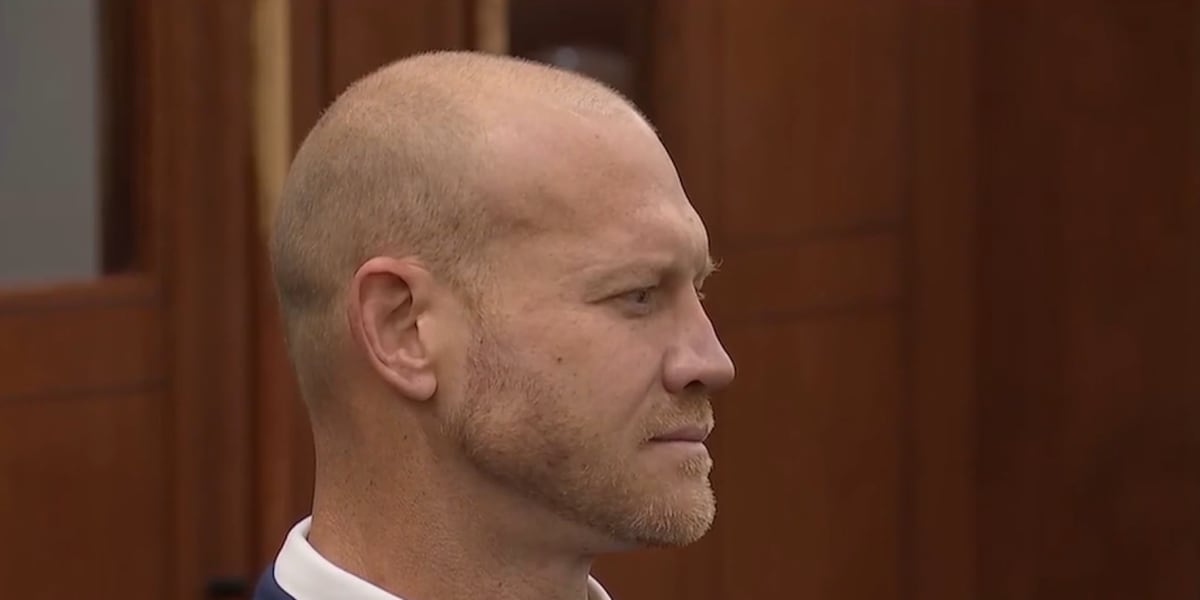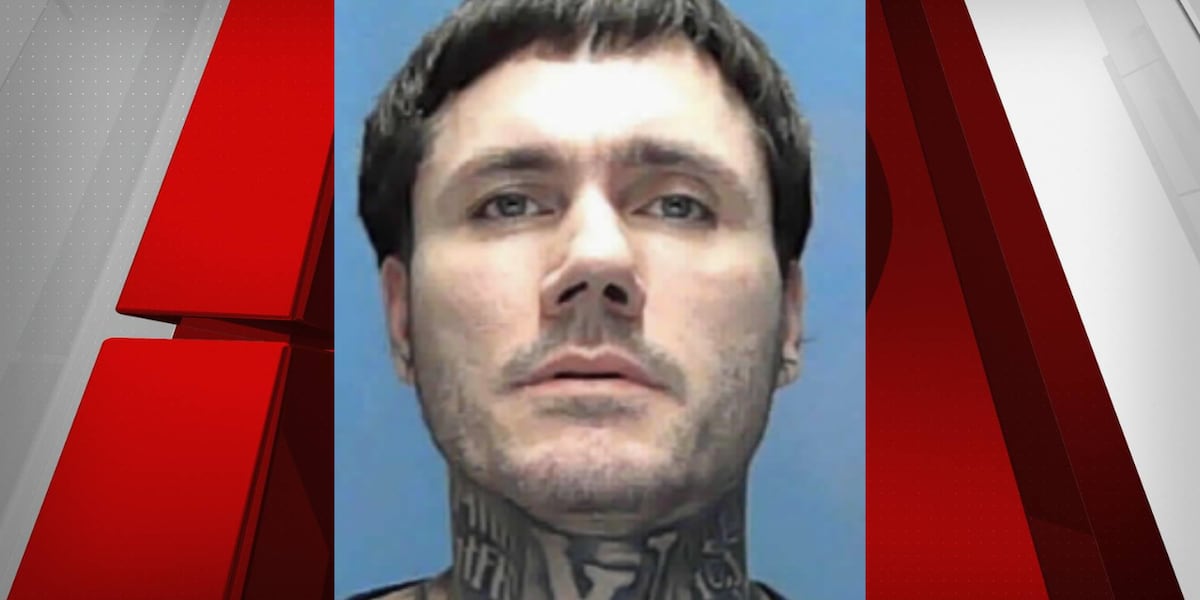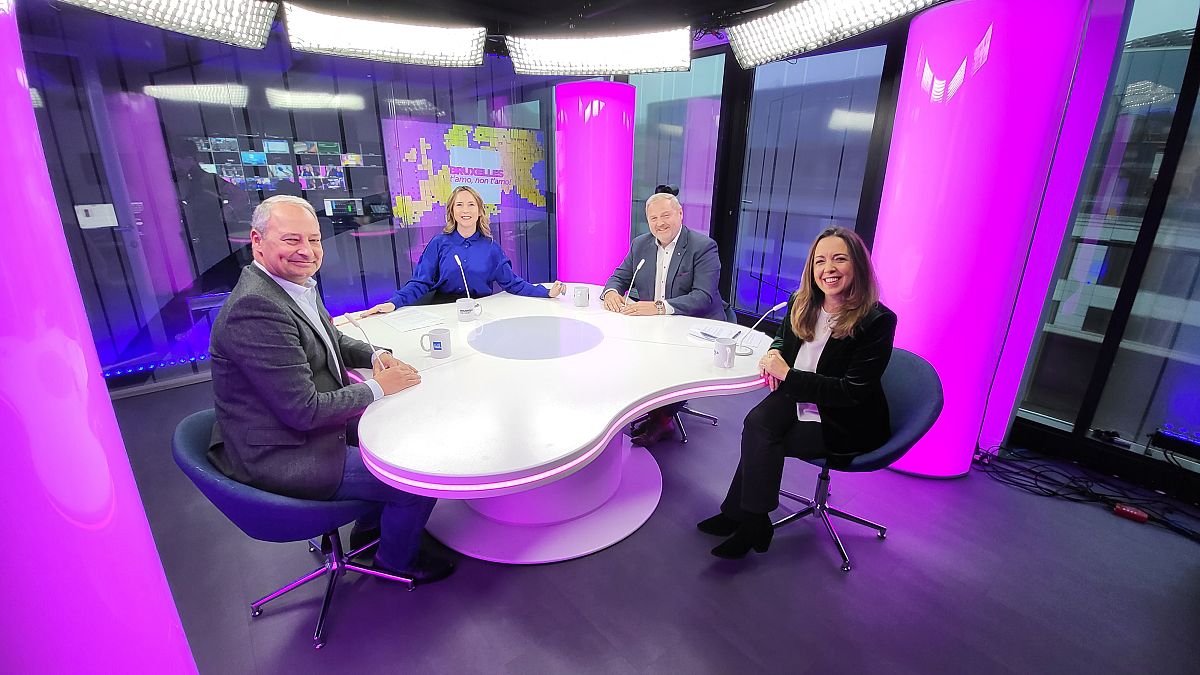Nevada
New Google geothermal electricity project in Nevada could be milestone for clean energy

(AP) – An advanced geothermal project has begun pumping carbon-free electricity onto the Nevada grid to power Google data centers there, Google announced Tuesday.
Getting electrons onto the grid for the first time is a milestone many new energy companies never reach, said Tim Latimer, CEO and co-founder of Google’s geothermal partner in the project, Houston-based Fervo Energy.
“I think it will be big and it will continue to vault geothermal into a lot more prominence than it has been,” Latimer said in an interview.
The International Energy Agency has long projected geothermal could be a serious solution to climate change. It said in a 2011 roadmap document that geothermal could reach some 3.5% of global electricity generation annually by 2050, avoiding almost 800 megatonnes of carbon dioxide emissions per year.
But that potential has been mostly unrealized up until now. Today’s announcement could mark a turning point.
Fervo is using this first pilot to launch other projects that will deliver far more carbon-free electricity to the grid. It’s currently completing initial drilling in southwest Utah for a 400-megawatt project.
Google and Fervo Energy started working together in 2021 to develop next-generation geothermal power. Now that the site near Winnemucca, Nevada is operating commercially, its three wells are sending about 3.5 megawatts to the grid.
The data centers require more electricity than that, so Google signed other agreements for solar and storage too. It has two sites in Nevada, one near Las Vegas and the other near Reno. Michael Terrell, who leads decarbonization efforts globally at Google, said the company is looking at using geothermal energy for other data centers worldwide as a portfolio of carbon-free technologies.
“We’re really hoping that this could be a springboard to much, much more advanced geothermal power available to us and others around the world,” he said.
Google announced back in 2020 that it would use carbon-free energy every hour of every day, wherever it operates, by 2030.
Many energy experts believe huge companies like Google can play a catalytic role in accelerating clean energy.
Terrell noted the company was also an early supporter of wind and solar projects, helping those markets take off.
“It’s a very similar situation. Now that we’ve set a goal to be 24/7 carbon-free energy, we have found it will take more than just wind, solar and storage to achieve that goal,” Terrell said in an interview. “And frankly to get power grids to 24/7 carbon-free energy as well, we’re going to need this new set of advanced technologies in energy. Looking at this deal with Fervo, we saw an opportunity to play a role in helping to take these technologies to scale.”
The United States leads the world in using the Earth’s heat energy for electricity generation, but geothermal still accounts for less than half a percent of the nation’s total utility-scale electricity generation, according to the U.S. Energy Information Administration. In 2022, that geothermal power came from California, Nevada, Utah, Hawaii, Oregon, Idaho and New Mexico.
Those are states traditionally thought of as having geothermal potential because there are reservoirs of steam or very hot water close to the surface in the West.
But Energy Secretary Jennifer Granholm said earlier this year that advances in enhanced geothermal systems will help introduce this form of energy in regions where it’s been thought to be impossible. Granholm was announcing funding for the industry.
Last year, the Energy Department launched an effort to achieve “aggressive cost reductions” in enhanced geothermal systems. This month, in announcing $44 million to advance geothermal deployment nationwide, DOE said the United States has potential for 90 gigawatts of geothermal electricity — the equivalent of powering more than 65 million American homes — by 2050.
Enhanced geothermal companies, including Fervo, are now going after heat deeper below ground, unlocking potential in many more places. Latimer is a former drilling engineer in the oil and gas industry.
Drilling technology and practices drastically improved during the shale boom that transformed the United States into a top oil and gas producer and exporter. But there has been very little tech transfer from the oil and gas industry to geothermal, said Sarah Jewett, vice president of strategy at Fervo.
“They were using all of the old, for lack of a better word, janky stuff from old-school oil and gas development,” she said. “We basically just went to the oil field service companies and said, ‘Give us all your best stuff.’ And we have been using all of the modern drilling technology to do our development.” That has led to far greater efficiency and lower cost, she said.
In a presentation at ClimateTech 2023 at the Massachusetts Institute of Technology, Latimer talked about how Fervo is pioneering horizontal drilling in geothermal reservoirs. In Nevada, Fervo drilled some 8,000 feet down, turned sideways and drilled about 3,250 feet horizontally.
By drilling horizontally, Fervo can reach much more of the hot reservoir, instead of having to have to drill many vertical wells.
Fervo pumps cold water down an injection well, then over hot rock underground to another well, the production well. The path between is created by fracking, or fracturing the rock. The water heats up to nearly 400 degrees Fahrenheit (200 degrees Celsius) before returning to the surface. Once there, it transfers its heat to another liquid with a low boiling point, creating steam. The pressure of steam expanding spins a turbine to produce electricity like in a coal or natural gas-fired plant. The geothermal water, now cooled, is put back down the injection well to start the cycle again, in a closed-loop system.
Well tests this summer were very favorable, according to Fervo. Latimer wants to replicate them now in as many places as possible, as quickly as possible, to help transition away from coal, oil and natural gas to reduce greenhouse gas emissions.
The venture capital firm DCVC invested $31 million in Fervo last year, said Rachel Slaybaugh, a partner there. They did it, she said, because Fervo was ready to add power to the grid while competitors weren’t there yet. Slaybaugh said it’s a plus that Latimer used to run a drill rig— it was the right team, who knew what kind of company they were building.
Both Fervo and Google said geothermal is valuable as an “always-on” clean technology that can be scaled up before 2030 as the world tries to cut its greenhouse gas emissions. Fervo’s next project, in Beaver County, Utah is slated to begin delivering clean power to the grid in 2026 and reach full production in 2028.
“This is unlocking something deeply sought after in the market today as we transition away from fossil fuels, and that is, round-the-clock renewable energy,” Jewett said.
Copyright 2023 The Associated Press. All rights reserved.

Nevada
Former Nevada congressional candidate appealing murder case to Supreme Court

LAS VEGAS, Nev. (FOX5) – A former Nevada congressional candidate accused of killing a man is appealing his case to the Supreme Court.
Daniel Rodimer challenged Representative Susie Lee back in 2020. He was identified as a suspect in the murder of 47-year-old Christopher Tapp on. October 29, 2023.
Rodimer made his first court appearance back in April last year.
PREVIOUS: Dan Rodimer makes first court appearance in Las Vegas murder case
His attorney, David Chesnoff, confirmed to FOX5 that he will be appealing the case. The appeal involves the judge’s denial of a Writ of Habeus Corpus.
Chesnoff mentioned three points: The state presented hearsay evidence of an alleged conversation, the state failed to instruct the grand jury on the impact that drug use has on credibility, and a detective’s testimony violated the Ultimate Issue Rule by stating his conclusion that this case is not a slip and fall, and directly declaring his opinion as to the petitioner’s guilt.
He submitted the writ in August and it was denied in September. He said the “writ was meritorious.”
MORE: Witness: Ex-pro wrestler, Congressional candidate ‘tackled’ victim at Halloween party before his death
Tapp suffered from multiple brain bleeds and died Nov. 5, 2023. Detectives learned that Tapp was in an altercation inside a room at a resort before being located and transported.
Rodimer lost to Lee by about 13,000 votes. Afterward, Rodimer moved to Texas and ran as a Republican in District 6 in a special election, but lost.
Copyright 2025 KVVU. All rights reserved.
Nevada
Upcoming legislative session bill would limit corporations buying single family homes in Nevada

LAS VEGAS, Nev. (FOX5) – For many families, the American Dream of home ownership now seems out of reach. There’s a push to change that and bring housing costs down in Nevada by limiting corporate buyers from pricing out families and individual buyers.
“You wouldn’t even know it, but this street, this whole entire street, is owned by a corporate investor. They built the houses and then they rent them out,” explained State Senator Dina Neil, who represents District Four including the North Las Vegas neighborhood where she met FOX5 for an interview.
“In this environment, the corporate owner is the only one reaping the benefit of the asset, not the family itself. Our Nevada citizens are actually being locked out,” Neal contended. Neal wants single family homes to be affordable for Nevada families.
“Fifteen percent of the market is owned by corporate investors and so this is going to change the narrative,” Neal argued. Her bill for the upcoming legislative session next month would require an investor to register with the Secretary of State, file as their deed as an investor, and limit them to buying 100 single family homes in Nevada per year.
“The reason why I’m able to legally do this is because the legislature has police powers when we’re in a crisis…We’ve been in a housing crisis for over four or five years,” Neal reported.
A CCSD teacher of ten years who wants to remain anonymous recently reached out to FOX5 about being unable to afford a home in the Las Vegas area.
“I think the average teacher that has either just started teaching or has around ten years of experience are right around the $60,000 salary mark and there’s just no homes in our budget,” the teacher stated. About half her income goes to rent. Still, she is cutting costs wherever she can to save up to hopefully one day afford a down payment.
“As a professional, you go to school and you get this degree to really help your community and we’re in this position where we can’t even live the lifestyle we want in this profession and it’s just becoming just very sad,” she confessed.
Neal brought a similar bill last legislative session but says it was vetoed by the governor. That is not deterring her from trying again.
Earlier this year, Nevada Senator Jacky Rosen also proposed legislation to go after corporate investors who she says are price gouging Nevadans and inflating costs in the housing market legislation called the HOME Act. It was referred to the Committee on Banking, Housing, and Urban Affairs.
Copyright 2025 KVVU. All rights reserved.
Nevada
Inmate stabbed to death in Nevada State Prison

LAS VEGAS, Nev. (FOX5) – The Nevada Department of Corrections has confirmed an inmate is dead due to a stabbing incident at High Desert State Prison.
According to NDOC on Jan. 15, 43-year-old Michael Dorotiak died at University Medical Center in Las Vegas.
Dorotiak was serving a sentence of 28 to 72 months at the maximum security prison for coercion.
Officials report an autopsy was requested and the family of Dorotiak have been notified.
Dorotiak was transferred from Clark County on Sept. 27, 2024.
The incident is under investigation.
This is a developing story.
Copyright 2025 KVVU. All rights reserved.
-
/cdn.vox-cdn.com/uploads/chorus_asset/file/25822586/STK169_ZUCKERBERG_MAGA_STKS491_CVIRGINIA_A.jpg)
/cdn.vox-cdn.com/uploads/chorus_asset/file/25822586/STK169_ZUCKERBERG_MAGA_STKS491_CVIRGINIA_A.jpg) Technology1 week ago
Technology1 week agoMeta is highlighting a splintering global approach to online speech
-

 Science7 days ago
Science7 days agoMetro will offer free rides in L.A. through Sunday due to fires
-
/cdn.vox-cdn.com/uploads/chorus_asset/file/23935558/acastro_STK103__01.jpg)
/cdn.vox-cdn.com/uploads/chorus_asset/file/23935558/acastro_STK103__01.jpg) Technology7 days ago
Technology7 days agoAmazon Prime will shut down its clothing try-on program
-

 News1 week ago
News1 week agoMapping the Damage From the Palisades Fire
-

 News1 week ago
News1 week agoMourners Defy Subfreezing Temperatures to Honor Jimmy Carter at the Capitol
-
/cdn.vox-cdn.com/uploads/chorus_asset/file/25826211/lorealcellbioprint.jpg)
/cdn.vox-cdn.com/uploads/chorus_asset/file/25826211/lorealcellbioprint.jpg) Technology6 days ago
Technology6 days agoL’Oréal’s new skincare gadget told me I should try retinol
-
/cdn.vox-cdn.com/uploads/chorus_asset/file/25832751/2192581677.jpg)
/cdn.vox-cdn.com/uploads/chorus_asset/file/25832751/2192581677.jpg) Technology3 days ago
Technology3 days agoSuper Bowl LIX will stream for free on Tubi
-

 Business4 days ago
Business4 days agoWhy TikTok Users Are Downloading ‘Red Note,’ the Chinese App




















